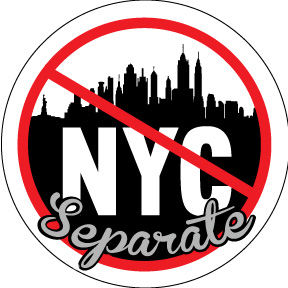Background checks won’t begin on Jan. 15
ALBANY – Checking the backgrounds and recording detailed information about anyone buying ammunition, a key component of New York’s gun-control law, will not begin as expected Jan. 15, State Police officials confirmed Friday evening.
Several days after The Buffalo News first inquired about delays in the ammunition provisions, the State Police said Friday the agency needs more time to develop a system that will check the backgrounds of individuals before they purchase ammunition.
Additionally, a requirement that ammunition sellers compile and maintain an assortment of information – from the buyer’s name and occupation to the type and amount of bullets bought – also will not be kicking in on Jan. 15 as permitted under the gun-control law.
Officials did not say when the ammunition background checks might start.
“The State Police is working on technology solutions to be able to carry out this section of the SAFE Act so that the public, buyers and sellers are not inconvenienced or delayed in any way when they purchase ammunition,’’ the State Police said in a statement.
The New York Secure Ammunition and Firearms Enforcement Act, or NY SAFE Act, was quickly approved in January following the shootings at the Sandy Hook elementary school in Connecticut. Besides its new definitions on what constitutes a banned assault weapon and limits on number of rounds permitted in a weapon’s magazine, the law also targeted ammunition purchases by dealers and gun owners.
The law requires ammunition sellers to register with the State Police and to also run the purchaser’s name through a state-created database to see if they can buy ammunition. Only commercial dealers capable of running a background check, which must include a photo identification procedure in a face-to-face transaction, can sell ammunition under the new law.
Further, ammunition dealers must keep a written log – noting the date of purchase and the name, age, occupation and residency of ammunition buyers – for each sale that police can later inspect “at all reasonable hours.’’ That could have begun, under the law, on Jan. 15.
The SAFE Act was pushed by Gov. Andrew M. Cuomo, who has seen his poll numbers decline upstate, in part, since the controversial law was approved in January without going through the normal three-day process. The News first asked about the ammunition registration provisions Monday, the same day the governor was in Manhattan being honored by New Yorkers Against Gun Violence.
Parts of the law took effect immediately, but other provisions, including the ammunition registration and background portions, were delayed to give time to agencies to prepare for changes in the SAFE Act.
Officials said a provision of the law requiring sellers of ammunition to be registered is still being implemented Jan. 15. Most are already federally registered anyway, but the new state law is expected to cover a larger range of sellers, including small stores that might sell ammunition as just a small part of their business.
Sources said that the state was hoping to use the federal National Instant Criminal Background Check system as part of the mandate that ammunition sellers check the backgrounds of ammunition buyers. But that background check system is only for purchase of weapons, a limitation that state officials said they knew of when the SAFE Act was being crafted.
The law envisioned that the system to check the backgrounds of ammunition buyers, as well as for dealers to record personal information about purchasers, could take effect in the middle of January – one year after the SAFE Act was approved. But the law gave discretion to the superintendent of the State Police to begin the ammunition program when a suitable system was in place.
The ammunition provisions have been among the most controversial of a law that still has gun owners fuming and is the subject of Second Amendment court challenges.
The delay on implementing parts of the ammunition program on Jan. 15 means sellers will not have to start recording the date, name, age, occupation and residence of ammunition buyers. In addition, dealers also were going to be required in January to record the amount, serial numbers, manufacturer’s name and caliber of ammunition they sold. That information then could be inspected by police.
Tom King, president of the New York State Rifle and Pistol Association, which has fought the SAFE Act, was not immediately available to comment.
The Cuomo administration has found that the controversy surrounding the SAFE Act has not gone away, especially in more conservative upstate areas. Anti-SAFE Act signs are still a common sight on lawns throughout many upstate communities, and many upstate sheriffs have suggested they will not enforce certain components of the law. County legislative bodies throughout the state have gone on record opposing the law.
While there is nothing to indicate there is any motive beyond getting a workable system in place to begin tracking ammunition purchases, the delay of the controversial ammunition provisions does put off a sticky public relations problem for Cuomo.
In the middle of January, Cuomo will still be trying to sell his State of the State proposals to voters statewide in advance of the release of his 2014 budget plan in a year in which he is seeking re-election; having the much-debated ammunition provisions take place at the same time would give critics another reason to protest Cuomo on his expected statewide tours to promote his 2014 agenda.
email: tprecious@buffnews.com
